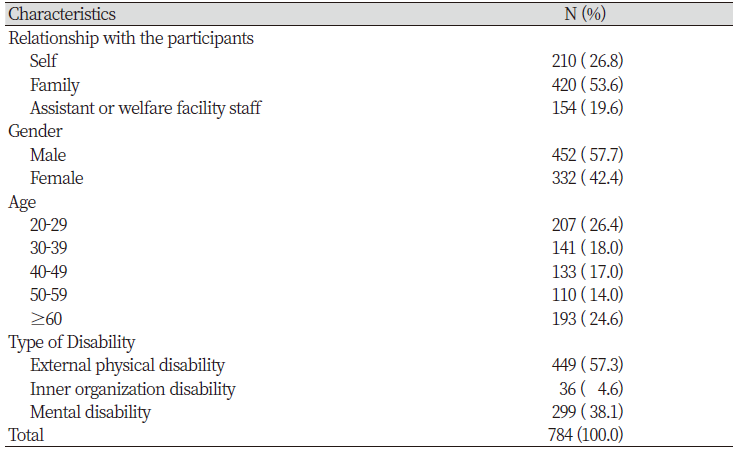Abstract
Objectives: The purpose of this study was to identify the factors of satisfaction with regional oral health centers for people with disabilities in Korea. Methods: A survey was conducted with 784 patients who visited regional oral health care centers in Korea. A self-developed questionnaire (29 items) was adapted with a consent form and IRB (Institutional Review Board). All collected data were analyzed for statistics using SPSS version 25.0. Results: The study participants were 452 (57.7%) male patients, 207 (26.4%) aged 20-29 years old, and mostly had physical, developmental, and mental disabilities. The patients were introduced by their acquaintances, and the major reason for visit was specific dental care for the disabled. Most patients used their cars and took half to one hour to commute. The common factor affecting the comprehensive satisfaction was the facility satisfaction. Conclusions: A more comprehensive and standardized questionnaire should be developed for the annual evaluation of all centers. This study presents the basic data that can aid to activate the operation of the four oral health care centers for the disabled, which are scheduled to be implemented in the future, as well as 10 currently operated centers.
Figures & Tables



